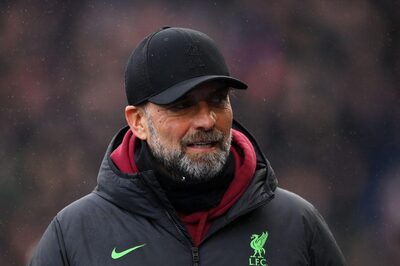
views
Former England cricketer Peter Such showed his mettle to register one of the longest ducks in history 25 years back on this day (August 6) in Manchester. It was the third Test of the series between England and New Zealand. England won the opening game by seven wickets in Birmingham.
New Zealand scripted a prompt comeback in the next fixture at Lord’s, registering a nine-wicket victory. The hosts batted first in the third match. The English batting unit suffered a collapse in the first innings. Except for Mark Ramprakash, no other player could breach the 30-run mark.
Ramprakash played a fine knock of unbeaten 69 in the first innings of the game. The host wrapped up the opening day with 108 runs, losing five wickets. They lost three more wickets before lunch on the second day.
England were reeling at 158/8 when Peter Such came down to bat at No. 10. He joined hands with Mark Ramprakash, who kept the scoreboard ticking with.
Such faced 51 balls and spent 72 minutes at the crease but could not open his account. He finally surrendered to Daniel Vettori, ending up being caught in the short-leg region.
When Peter Such was heading back to the pavilion, the English crowd in Manchester gave him a standing ovation, acknowledging his gritty effort with the bat. He responded to the loud cheer from the home fans by lifting his helmet. Such stitched a 31-run partnership with Ramprakash before his dismissal.
At that time, Peter Such’s duck was the third longest in Test cricket in terms of ball count and the second longest as per time. Based on minutes spent at the crease, New Zealand batter Geoff Allott holds the record for the longest duck. He survived for 101 minutes and faced 77 balls during an Auckland Test in 1999.
Coming back to the Manchester Test, Mark Ramprakash remained unbeaten on 69 having faced 277 deliveries. England posted 199 in the first innings. In response, New Zealand reached 496, riding on centuries by Nathan Astle and Craig McMillan.
The on-field proceedings were affected by the rain in the final phase of the game England had scored 182 runs at the loss of two wickets in the second innings and the Test ultimately had ended in a draw.



















Comments
0 comment